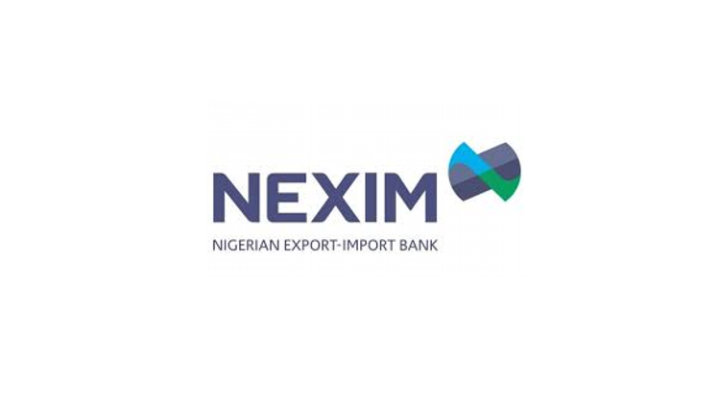The Nigerian Export-Import Bank (NEXIM) has reported a significant boost in its operating profit, which climbed to N30.47 billion, underscoring the institution’s growing role in driving non-oil exports and supporting the federal government’s diversification agenda. This marks one of the strongest financial performances in the bank’s history, highlighting improved efficiency, prudent management, and increased lending to export-oriented sectors.
The latest figures reflect a steady rise in NEXIM’s profitability, driven largely by heightened demand for credit facilities among businesses engaged in export trade. The surge comes at a time when Nigeria continues to grapple with foreign exchange scarcity and seeks to strengthen its balance of payments by boosting non-oil export revenues.

NEXIM Bank, established to provide export credit, risk guarantees, and insurance to Nigerian exporters, has in recent years intensified its efforts to expand its intervention programs. By focusing on sectors such as agriculture, manufacturing, solid minerals, and services, the bank has sought to reduce Nigeria’s overreliance on crude oil exports while enhancing value-added production. The strong profit performance, analysts say, is evidence that these measures are beginning to yield results.
According to NEXIM’s latest financial disclosures, the N30.47 billion operating profit represents a marked improvement compared to previous years, underscoring the institution’s resilience amid a challenging economic environment characterized by inflation, exchange rate volatility, and rising borrowing costs. Bank officials attributed the strong results to effective cost management, loan recoveries, and an expanded portfolio of funded projects.
The Managing Director of NEXIM Bank, Abba Bello, said the bank’s success reflects a deliberate strategy to strengthen Nigeria’s export base. He explained that by supporting small and medium enterprises (SMEs) involved in export-oriented ventures, NEXIM has been able to stimulate employment, generate foreign exchange inflows, and enhance Nigeria’s competitiveness in global trade. “This performance is not just about numbers but about impact. We are supporting real businesses that are creating jobs and contributing to Nigeria’s economic stability,” Bello stated.
Industry stakeholders have hailed the development, noting that Nigeria urgently needs institutions like NEXIM to scale up their interventions if the country is to address persistent foreign exchange shortages. With the Central Bank of Nigeria (CBN) tightening access to forex and importers facing rising costs, a stronger export base is seen as the most sustainable solution to easing pressure on the naira.
The bank’s increased profit also signals stronger confidence among exporters who rely on its facilities. Many Nigerian exporters face difficulties accessing long-term, affordable financing from commercial banks, making NEXIM a critical lifeline. Through specialized export credit and guarantees, the institution has helped businesses penetrate new markets while mitigating risks associated with international trade.
NEXIM’s performance also comes against the backdrop of the federal government’s push to expand Nigeria’s non-oil sector, particularly agriculture and manufacturing. The government has been working with financial institutions to encourage local production and exports of goods such as processed agricultural products, textiles, solid minerals, and creative industry services. The bank’s success is therefore being viewed as a strong complement to these policy efforts.
Experts point out that the N30.47 billion operating profit provides NEXIM with greater capacity to scale its interventions. This could translate into more loans for exporters, additional guarantees for businesses entering new markets, and expanded partnerships with international lenders and investors. Already, the bank has indicated plans to broaden its reach by supporting more SMEs across Nigeria’s six geopolitical zones, with a focus on rural-based exporters who are often excluded from mainstream financing.
The development is also expected to boost investor confidence in Nigeria’s financial sector. A profitable and efficient export-import bank is not only crucial for financing trade but also for attracting foreign direct investment. With stronger capital and liquidity positions, NEXIM is better positioned to engage in cross-border collaborations and mobilize resources from global partners.
Despite the strong financial results, challenges remain. Exporters in Nigeria still grapple with inadequate infrastructure, high logistics costs, port inefficiencies, and bureaucratic hurdles that limit their competitiveness in global markets. While NEXIM’s financial success is encouraging, experts stress the need for broader reforms in trade facilitation, infrastructure development, and policy consistency to maximize the impact of export financing.
Nonetheless, the profit surge signals that progress is being made. With NEXIM Bank consolidating its position as a key driver of Nigeria’s diversification agenda, attention is now shifting to how the institution will leverage its improved financial standing to scale its developmental impact.
Looking forward, the bank is expected to channel part of its profit toward expanding credit access for exporters, investing in risk mitigation tools, and promoting regional integration under the African Continental Free Trade Area (AfCFTA). By enabling Nigerian businesses to take advantage of opportunities across Africa, NEXIM could play a pivotal role in positioning the country as a leading player in intra-African trade.
For now, the N30.47 billion operating profit stands as a milestone achievement, reflecting the resilience of Nigeria’s export sector when adequately supported. It also offers hope that with sustained commitment, targeted investments, and effective financing, the country can gradually reduce its dependence on oil exports and build a more diversified and sustainable economy.
Support InfoStride News' Credible Journalism: Only credible journalism can guarantee a fair, accountable and transparent society, including democracy and government. It involves a lot of efforts and money. We need your support. Click here to Donate
